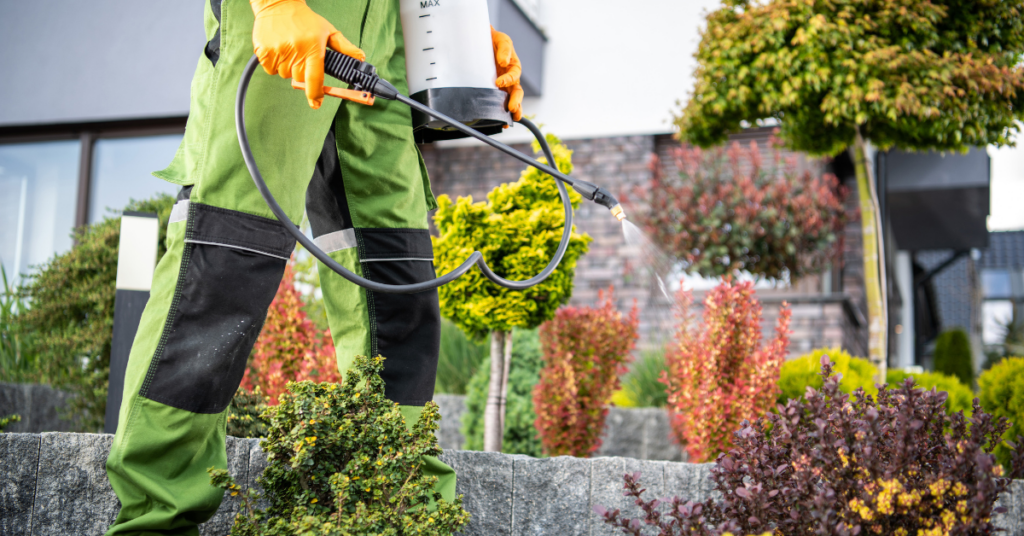What Time of Year Is Best for Pest Control?

When it comes to pest control, timing is everything. With the right strategy and schedule, a homeowner can keep their home free from pests year-round. But focusing pest control efforts on specific seasons can help significantly reduce the number of pests that enter the home and help you manage them more effectively.
With that in mind, let’s take a look at when is the best time of year for pest control and what common pests to anticipate in your area at different times of the year. We’ll also discuss the advantages of pest control treatments during different seasons, as well as some tips for choosing the best time of year for pest control and safety measures to be taken while using pest control treatment in different seasons. Lastly, we’ll look at the most effective pest control treatments for different times of the year.
When Is the Best Time of Year for Pest Control?
Pest control treatments should occur regularly throughout the year, however there are certain times of the year when pest control is particularly important. Pests tend to be most active when temperatures are mild and they’re looking for food, water, and shelter; this means spring and summer are the most popular times for pests. That said, having a pest control plan in place for all four seasons is the best way to ensure your home remains free from unwanted pests. While determining the best season for pest control is crucial, you may also wonder about the frequency of such services. Discover if you need monthly pest control to keep your home safeguarded throughout the year.
What Common Pests Should I Anticipate in My Area at Different Times of the Year?

It’s important to be aware of which pests are more active in different seasons so you can plan accordingly. While there are always some resilient pests such as cockroaches, bedbugs, ants, and termites that can be present year round, other pests are only active in certain months.
During the winter, mice, rats, and other small mammals will try to find shelter in homes and other buildings. Similarly, flying insects, wasps, and bees become an issue during the summer months. Regardless of the season, it’s important to inspect your property regularly for signs of pests and take appropriate action if needed.
What Are the Advantages of Pest Control Treatments During Different Seasons?
Having a good understanding of your local climate and weather patterns can help you plan better for pest control treatments. As mentioned above, spring and summer are the peak times for common pests such as mosquitoes, flies, and ants. A preemptive strike during this time can go a long way in managing these pests long term.
Other pests, such as rodents, thrive in the cold winter months. Starting a pest control treatment regime in late autumn can help reduce the numbers of these pests before they become an issue during the winter. If left unchecked, rodents can quickly become a major problem in homes.
Are There Certain Times of the Year That Are Safer to Use Certain Pest Control Treatments?

Before beginning any pest control treatment, it’s important to consider how the treatment might affect family members, pets, and the environment in general. Generally, early summer is the best time to deal with pests that are active during the day (like mosquitoes, flies, and ants). Late fall and winter are ideal for tackling pests that are active at night (mice and rats). It’s also recommended that you at least schedule pest control in the early spring; this is when the populations of bugs, nests, and colonies are relatively low.
Are There Any Tips for Choosing the Best Time of Year for Pest Control?
When planning your pest control treatments, it’s important to consider the type of pest you’re dealing with. Not all pest control methods are suitable for all kinds of pests. For example, baiting and trapping are suitable for dealing with cockroaches, ants, and rodents; professional extermination may be required for bed bugs; and liquid insecticides are needed for termites.
In addition to considering the type of pest, it’s also important to think about how often you should treat your home and how much pesticide you should use. Using too much or too little pesticide can have serious consequences for public health and the environment. It’s essential to consider the safety of pest control treatments, especially in relation to the time of year and the pests you’re dealing with. Learn more about the safety of pest control to ensure the well-being of your family and pets. This is why it’s important to follow the manufacturer’s instructions for application and personal safety.
What Safety Measures Should Be Taken While Using Pest Control Treatment in Different Seasons?

Whenever possible, reduce the use of pesticides. In your quest to use pesticides responsibly, consider integrating non-toxic pest control tips into your approach to protect your household and the environment. Determine to what extent the use of pesticides is actually needed. Look for ways to solve the issue with non-chemical pest management where possible.
When using pesticides, it’s important to practice safe usage. Personal protective equipment (PPE) is usually necessary when handling and applying pesticides. Everyone in the vicinity should wear appropriate clothing and avoid direct contact with the pesticide. Additionally, follow the manufacturer’s instructions for application and personal safety.
What Are the Most Effective Pest Control Treatments for Different Times of the Year?
The most effective pest control treatment will depend on the type of pest you’re dealing with. Generally speaking, baiting and trapping are suitable for dealing with cockroaches, ants, and rodents. Liquid insecticides are usually used for treating termites. For bed bugs, professional extermination may be required. If you’re facing a bed bug infestation, professional extermination may be necessary. Understand how professional pest control exterminators kill bed bugs to effectively address this common household pest.
It’s also important to note that some treatments may not be suitable for certain seasons. For example, baiting and trapping is generally not recommended during winter as pests tend to move around less during those months. Additionally, certain methods may be more suitable for certain climates. So make sure to consult your local pest control expert before choosing a method.
Conclusion
Pest control is an important part of keeping your home free from pests. Having a good understanding of your local climate and weather patterns can help you plan for pest control treatments at the right time.
For maximum efficiency, it’s important to consider the type of pest you’re dealing with and the safety measures that must be taken while applying pest control treatments. Depending on the pest and the season, certain treatments may be more or less effective. Consulting your local pest control expert can help you choose the most suitable option for your home. Before sealing the deal on a new home, make sure you’re not inheriting a pest problem. Learn the three reasons to get a home pest inspection before buying a house, and approach your big investment with confidence.
Ready to secure your home against pests in every season? Our specialized services are just a click away, no matter where you are. For residents in West Vancouver, tap into our expert West Vancouver Pest Control solutions. If you’re in North Vancouver, our dedicated North Vancouver Pest Control team is prepared to tackle your pest concerns. For Vancouver locals, our Vancouver Pest Control services are designed to address the unique challenges of the area. In Burnaby & New West, you can rely on our robust Burnaby & New West Pest Control services for swift and efficient pest management. Coquitlam & Tri-Cities homeowners can access targeted assistance with our Coquitlam & Tri-Cities Pest Control, and if you’re in Richmond, our Richmond Pest Control services are ready to restore the comfort of your home. Click on your area to set up an appointment, and say goodbye to pests for good!
